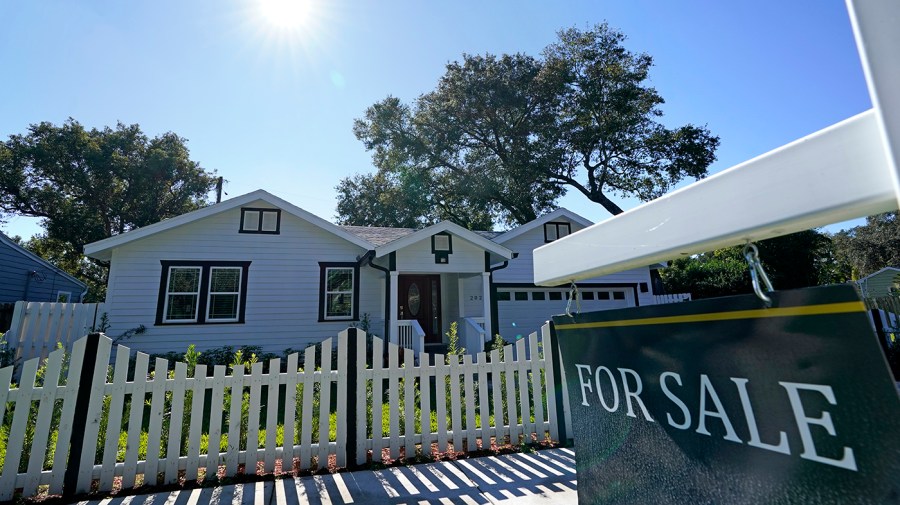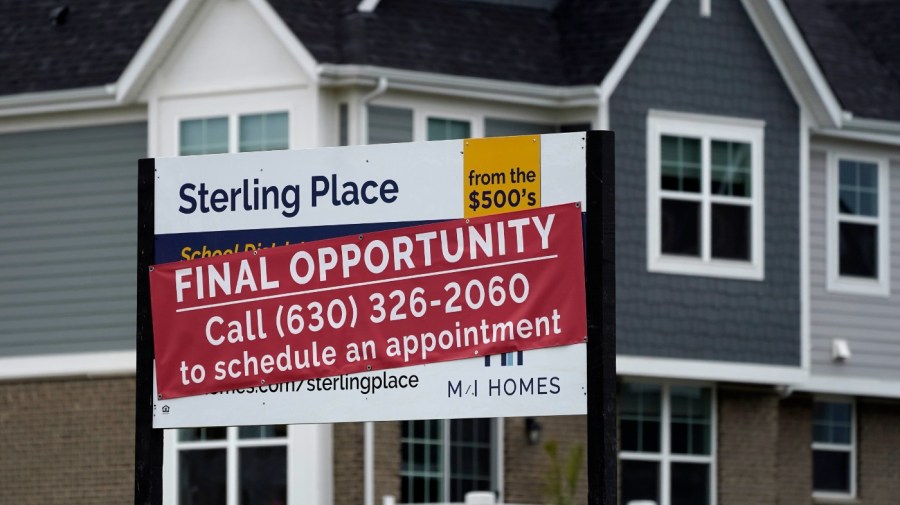Foreclosures are up. But is the housing market headed for a crash?

Foreclosure notices ticked up nationwide in the first quarter of the year with more than 65,000 properties beginning to go through the process.
There were 36,617 new filings in March, which marks the 23rd consecutive month with a year-over-year increase in foreclosure activity, according to a recent report from ATTOM. They were up 3 percent from the previous quarter and 29 percent year-over-year.
Housing downturn: Home seller profits at two-year low: report
Yet economists say housing market conditions are different from the 2008 housing crash partly due to enormous equity homeowners gained in their homes in recent years and overall higher credit scores.
Homeowners are in better shape than in 2008

“Foreclosures, while rising, remain at a historically low level and pose little risk to the outlook for housing in the coming year,” Matthew Walsh, housing economist at Moody’s Analytics, told The Hill.
“This housing correction is very different than the one in 2008: Homeowners have a lot of equity given the quick pace of appreciation over the last two years, and underwriting remains strong,” Walsh said.
Buyer burnout: Pending home sales fall for first time since November
Walsh added that the share of mortgages to borrowers with credit scores below 700 is at a record low.
Meanwhile, national delinquency rates fell in March to below 3 percent for the first time on record, dropping by 0.53 percentage points, according to separate data from BlackKnight. This marked the second largest decline in nearly two decades.
Serious delinquencies, in which a payment is more than 90 days overdue, fell to their lowest point since 2020 at 51,000.
A mortgage is considered delinquent when one payment is at least 30 days overdue, while the foreclosure process occurs when a lender attempts to collect repayment.
“Our current baseline outlook assumes no recession, but should one occur, and the unemployment rate increases meaningfully, the resulting rise in foreclosures would have a much smaller impact on the housing market than in 2008 since homeowners are better qualified for their mortgages and the housing market is currently undersupplied, rather than oversupplied,” Walsh said.
During the financial crisis in 2008, there were more than 2.3 million properties with at least one foreclosure filing, according to a Pew Research analysis. Through the first quarter this year, there have been 65,346 foreclosure starts.
Why foreclosures are rising
ATTOM’s report shows that 1 in every 1,459 housing units across the country had a foreclosure start in the first quarter. California, Texas, Florida, New York and Illinois were among the states with the highest number of foreclosure filings while the highest rate was in Illinois. Banks repossessed 12,518 properties via foreclosure in the first quarter — up 8 percent from the previous quarter.
“Despite efforts made by government agencies and policy makers to try and reduce foreclosure rates, we are seeing an upward trend in foreclosure activity,” ATTOM CEO Rob Barber said in a statement.
Inflation still putting housing out of reach for many Americans
“This unfortunate trend can be attributed to a variety of factors, such as rising unemployment rates, foreclosure filings making their way through the pipeline after two years of government intervention, and other ongoing economic challenges,” Barber added.
The federal moratorium on foreclosures throughout the pandemic expired last June. Even so, Barber said the equity homeowners built in recent years could keep a crisis at bay.
Homeowner equity remains high despite recent price declines

Prices are falling after surging for more than two years, and Redfin chief economist Daryl Fairweather told The Hill it would be surprising if some homeowners were not underwater on their investments.
“But I still don’t see it as a problem because for the most part, homeowners are a very stable class of people. As long as they bought before 2022, they should have equity in their home,” she said.
“They are the kind of people who have really high credit scores — really great credit scores were up for home purchasers during the pandemic. So, it’s just a very stable type of class now compared to in 2008 when we had subprime borrowers in the market, who when they got underwater were in a much tougher spot,” she added.
The total value of U.S. homes dropped by $2.3 trillion from the previous year in February to $45.3 trillion as the housing market weakened amid the Federal Reserve’s effort to curb inflation. This led prices to fall from their peaks.
But homeowners who purchased during the pandemic are still seeing significant value to their investments.
“The housing market has shed some of its value, but most homeowners will still reap big rewards from the pandemic housing boom,” Redfin economics research lead Chen Zhao said in February.
“The total value of U.S. homes remains roughly $13 trillion higher than it was in February 2020, the month before the coronavirus was declared a pandemic,” Zhao added.
Copyright 2023 Nexstar Media Inc. All rights reserved. This material may not be published, broadcast, rewritten, or redistributed. Regular the hill posts







